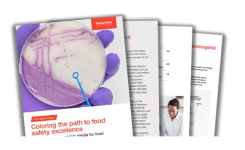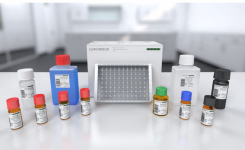USDA and DuPont to Develop Test for non-O157 STEC
go back to news archives| DuPont and the U.S. Department of Agriculture have agreed to collaborate on the development of a new test for detecting hard-to-identify strains of toxin-producing E. coli that are not currently regulated and have been causing increased instances of food contamination and illness. DuPont was among the first to develop tests for E. coli O157:H7, the type of shiga toxin-producing E. coli (STEC) most frequently associated with global food contamination outbreaks. The USDA Food Safety and Inspection Service uses the DuPont™ BAX® System to monitor for this pathogen. In recent years, other types of STEC have been identified as agents of foodborne illness, and these are a growing concern in the United States, Europe, Japan and food safety agencies worldwide. The Agricultural Research Service of the U.S. Department of Agriculture (USDA ARS) will collaborate with DuPont Nutrition & Health to develop an effective test for the 'Big 6' non-O157 STEC pathogens in food, and will also expand the diagnostic tools offered for use in the DuPont™ BAX® System. 'The USDA continually looks for opportunities to collaborate in ways that will expedite research to assist regulatory agencies and move technologies into the marketplace. This collaborative project to develop a discriminating STEC test is a good fit with our mission,' said Pina Fratamico, USDA ARS research microbiologist. 'Developing the best science available into applications that meet the needs of the food industry has been our mission for more than a decade,' said Marcos Cantharino, global business director - DuPont Nutrition & Health. 'Our DNA-based technology is easy to use, rapid and accurate, and provides the food industry with a simple and reliable test system to help assure protection of the global food supply.' The U.S. Centers for Disease Control estimate that non-O157 STEC bacteria are responsible for 36,000 illnesses, 1,000 hospitalizations and 30 deaths annually. The majority of these infections have been associated with six specific serotypes: STEC 026, 045, 0103, O111, O121 and O145. |
NOTE: This item is from our 'historic' database and
may contain information which is not up to date.
Source : DuPont Nutrition & Health View Company Information
Posted on August 4, 2010
















